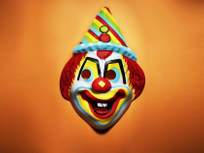Word of the Day
: April 19, 2011parable
playWhat It Means
: example; specifically : a usually short fictitious story that illustrates a moral attitude or a religious principle
parable in Context
The priest opened his homily by relating the parable of the Good Samaritan that appears in the Gospel of Luke.
"Look for no blameless moppets in ‘The Adventures of Pinocchio,’ Carlo Collodi’s 1883 folk classic about a naughty puppet who longs to be a real boy. A far cry from Disney’s sanitized classic, Collodi’s masterly parable captures the spirit of childhood anarchy as few other works of children's literature have before or since." -- From a theater review by F. Kathleen Foley in the Los Angeles Times Culture Monster blog, March 3, 2011
Did You Know?
"Parable" comes to us via Anglo-French from the Late Latin word "parabola," which in turn comes from Greek "parabolē," meaning "comparison." The word "parabola" may look familiar if you remember your geometry. The mathematical "parabola" refers to a kind of comparison between a fixed point and a straight line, resulting in a parabolic curve; it came to English from New Latin (Latin as used since the end of the medieval period, especially in scientific description and classification). "Parable," however, descends from Late Latin (the Latin language used by writers in the 3rd to 6th centuries). The Late Latin term "parabola" referred to verbal comparisons: it essentially meant "allegory" or "speech." Other English descendants of Late Latin "parabola" are "parole" and "palaver."
Test Your Memory
What recent Word of the Day came from The Prisoner of Zenda, an 1894 novel set in a mythical kingdom? The answer is ...
More Words of the Day
-
Apr 26
nonchalant
-
Apr 25
travail
-
Apr 24
ostensible
-
Apr 23
slough
-
Apr 22
liaison
-
Apr 21
bodacious











